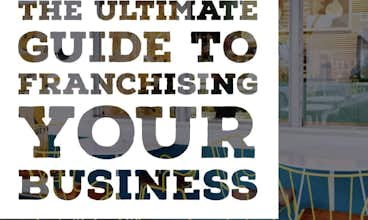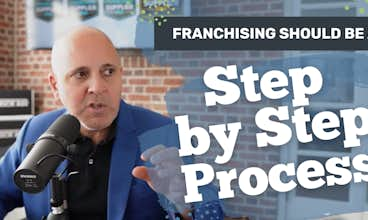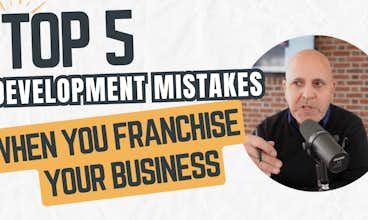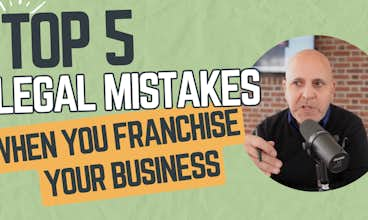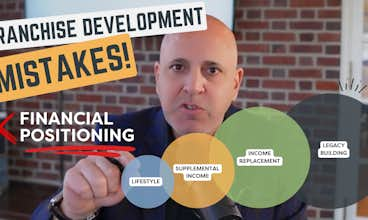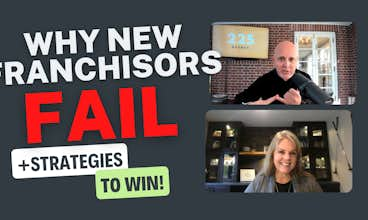Face Foundrié’s Michele Henry traded her workboots for stilettos – and built a remarkable brand from the ground up.
As a teenager growing up in an entrepreneurial family, Michele Henry got a glimpse of what it meant to be your own boss at a young age – and there was no looking back.
“I got that entrepreneurial bug early, and I truly didn't know anything different. That's how I grew up, and I learned so much from being part of (my family’s) business,” says Henry, founder and CEO of Face Foundrié, a beauty and facial bar concept with over 50 locations across the U.S.
By the time she reached college, Henry recalls spending her summers managing her father’s construction crew and helping run her family’s swimming pool business while learning valuable lessons about entrepreneurship – including the long hours and intense work ethic that are often necessary to keep things operating smoothly.
“Anyone that comes from a family business knows they don't leave it at the office, and it's not nine-to-five, so we would hear about business conversations – myself and my siblings – all the time at the dinner table. It didn't turn off,” Henry says.
Despite its demanding pace, entrepreneurship didn’t scare Henry, who launched her own business alongside a friend and business partner in 2010, after graduating from college. Together, the pair spent the next seven years growing their “cheap chic boutique” into a chain with eight locations across the Midwest, styling nearly a million women and increasing the value of their brand exponentially in the process.
Still, after nearly a decade as the co-owner of a thriving clothing business, Henry knew she wanted to do more as an entrepreneur – she wanted to start a franchise.
Seeking solutions and discovering opportunities
Henry found the opportunity she’d been looking for after the birth of her third child in 2017, when she began an uphill battle against hormonal acne – and against a beauty industry that felt inhospitable to women with families, careers and busy schedules.
“There was not any accessible facial bar. That did not exist. And the med spas that you would try to frequent really had constrictive hours. They were nine-to-five, they weren't open on the weekends, and there were heavy price points to go in and get a facial or get some sort of treatment that would help with what I was struggling with at the time,” Henry says.
After spending the next year developing a business plan for a more approachable solution to facial skincare, Henry sold her shares of the women’s clothing chain she’d co-founded as a college graduate and, moments later, signed the lease for her new facial bar at the high-end Galleria in Edina, Minnesota.
“It was scary. It was the scariest five minutes I’ve waited, but I knew I had to participate. I couldn't shake it,” Henry recalls.
Disrupting an established industry
Undaunted by her lack of experience in the esthetician space, Henry leaned into the years of business experience she’d acquired since high school to bridge the gap between her former industry and the new one she was about to enter.
“A lot of the things that I learned from owning a women's clothing chain really did translate into stepping into wellness and facial services,” Henry says.
Still, Henry wasn’t looking to fit neatly into her new industry – she wanted to break the mold. Offering walk-in accommodations and services including mini-facials, eyelash extensions, facial waxing and other skincare treatments alongside curated products, Face Foundrié was perfectly positioned to disrupt the skincare and beauty space by introducing new services that could break through the industry’s traditional exclusivity.
“We’ve completely shattered all of that. So it's open-air. Oftentimes, we have walk-in services available. We’re efficient, effective and probably most importantly, we are approachable,” Henry says.
Beyond the brand’s innovative approach to business, Face Foundrié’s business model was also intentionally streamlined for franchising from the day its doors opened – something Henry had decided on even before exiting her former business.
“I fell in love with the idea of franchising, and so whatever I was doing next, I knew it had to be a franchise model. So that meant, from day one, we were making sure we were writing down and identifying every single process and procedure,” Henry says.
After successfully proving Face Foundrié’s business model in three very different locations, including an urban location in Minneapolis’s North Loop and another in Maple Grove, Henry franchised the business in 2021 after navigating the business around the pandemic’s obstacles.
“I think proving the concept in multiple areas is super important for a franchisor, because it does speak to different franchisees wanting to come in and open,” Henry says, adding that franchisors should consider their location, marketing spend, costs and unit economics when identifying ways to scale their brands more effectively.
Building an entrepreneurial legacy
For Henry, part of the appeal of the franchise model has always been building a legacy for her children, who grew up watching her run her business much like she grew up watching her father run his.
Beyond creating a legacy for her family, though, Henry also sees value in creating opportunities for other aspiring entrepreneurs to do the same.
“I think that is ultimately the goal, not only for our franchisees but also for estheticians and their staff, and anyone that really comes in contact and wants to help build the brand and grow with the brand,” Henry says.
To make sure everyone is successful, Henry says she’s “fiercely picky” about onboarding new franchisees and pays close attention to whether their values align with Face Foundrié’s mission. The brand looks for candidates who want to be active in their businesses, are open to multi-unit ownership, have experience running a business and are properly funded. In addition to strong franchisees, Henry also stresses the importance of building a great corporate team to fill in gaps.
“I've seen too many franchisors welcome everybody into the system, and I think that's a little bit dangerous,” Henry says.
Once onboard, franchisees are offered tools and resources to help them succeed as business owners – and provide validation to future franchisees and investors. That support includes assistance with pre-opening, build-out, operations, marketing, creative, digital support and more.
“Our technology roadmap is really robust, and I'm excited to launch new components in the next two to three years, some of which are driven by AI,” Henry says.
In return, the brand sets expectations with franchisees and looks at key performance indicators including service and product sales, membership growth, monthly promotions and more. Face Foundrié also boasts an annual franchisee conference, a franchise advisory council that helps shape decisions, and a portal for franchisees that improves internal communications and transparency.
For Henry, that high level of teamwork, mutual support and accountability is critical for success.
“Anyone starting a business, even if it's outside of franchising, my best advice would be, make sure you find people that can fill the gaps that maybe aren't your strong suits. That's really basic advice, but I think people overlook that often,” Henry says.
To learn about franchising opportunities with Face Foundrié, visit https://facefoundrie.com/franchise.
